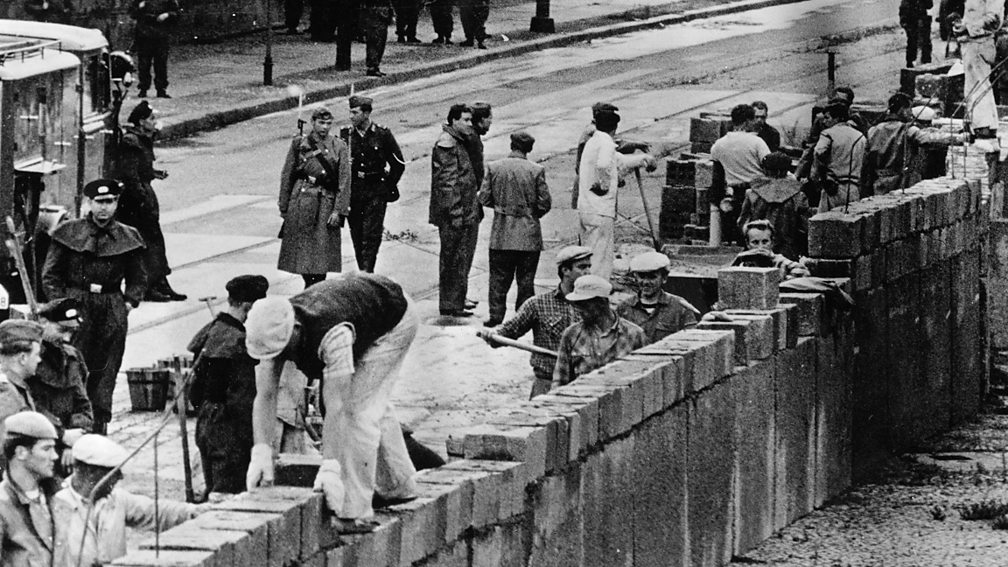The hydrogen bomb - a thermonuclear weapon much more powerful than the atomic bomb.
H-Bomb
The state of hostility, without direct military conflict, that developed between the United States and the Soviet Union after World War 2.
Cold War

A concrete wall that separated East and West Berlin, Germany.
Berlin Wall
A list of about 500 actors, writers, producers, and directors who were not allowed to work on Hollywood films because of their alleged Communism.
Blacklist
He was an American government official accused in 1948 of having spied for the Soviet Union
Alger Hiss
A U.S. agency created to gather secret information about foreign governments.
Central Intelligence Agency (CIA)
A conflict between North and South Korea.
Korean War

A phrase used by Winton Churchill, to describe an imaginary line that separated Communist countries in the Soviet Block of Eastern Europe from Western Europe.
Iron Curtain
A 327 day operation in which US and British planes flew food and supplies into West Berlin after the Soviets blockaded the city.
Berlin Airlift
First Secretary of the Communist Party of the Soviet Union from 1953 to 196.
Nikita Khrushchev
A defensive military alliance formed in 1949, by ten Western European countries, including the United States and Canada.
North Atlantic Treaty Organization (NATO)
A U.S. policy announced by President Harry Truman, providing economic and military aid to free nations.
Truman Doctrine
 The downing of a US spy plane and capture of its pilot by the Soviet Union
The downing of a US spy plane and capture of its pilot by the Soviet Union
U2 Incident
The blocking of another nation's attempt to spread it's influence.
Containment
By the time both countries had the H-Bomb, this man was the president of the United States.
Dwight Eisenhower
An international peacekeeping organization, to which most nations belong.
United Nations (UN)
A U.S. commitment to defend the Middle East against attack by any communist country.
Eisenhower Doctrine
 What separates North and South Korea?
What separates North and South Korea?
38th Parallel
A country that is dominated politically and economically by another nation.
Satellite Nations
Minor activists in the communist party. They were found guilty of espionage and sentenced to death.
Ethel and Julius Rosenberg
A congressional committee that investigated Communist influence inside and outside the US Government.
House Un-American Activities Committee (HUAC)
The program proposed by Secretary of State George Marshall, under which the United States supplied economic aid to European nations to help them rebuild after WW2
Marshall Plan
An island where Chiang Kai-Shek and remnants of his demoralized government fled to. Also known by Westerners as Formosa. It is NOT China.
Taiwan
The practice of threatening an enemy with massive military retaliation for any aggression.
Brinkmanship
An anti-communist senator.
Senator Joseph McCarthy